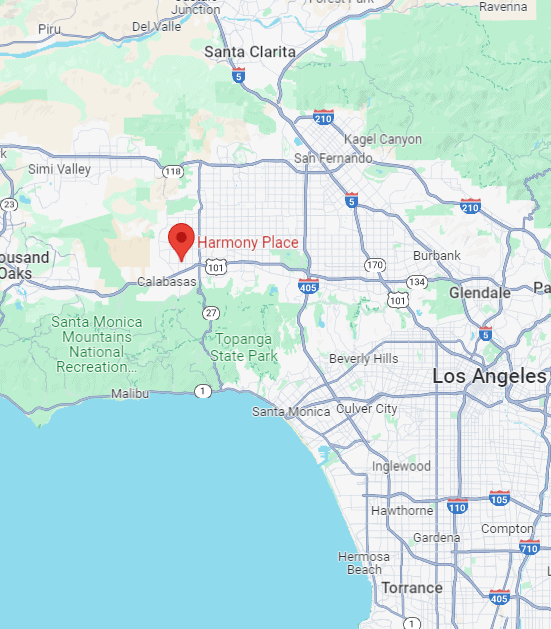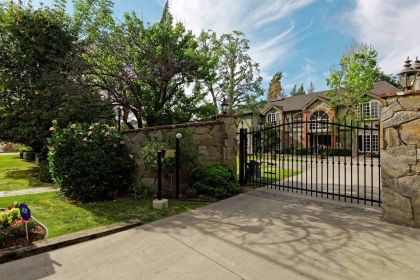24/7 Free Addiction Hotline Number in Southern California
If you or someone you know is struggling with substance abuse in Southern California, our 24/7 addiction hotline number is here to provide immediate support. Harmony Place offers one of the trusted addiction hotlines in the region, delivering confidential help, resources, and guidance on treatment options. Take the first step toward recovery today by calling our dedicated team for compassionate assistance.
What Is Drug and Alcohol Addiction?
Drug addiction and alcohol addiction are chronic, often relapsing disorder involving the compulsive and harmful use of substances. People with addiction face a loss of control over their consumption, leading to negative consequences in various aspects of life. It can include both physical and psychological dependence, impacting your health, relationships, and overall well-being.
The journey to recovery often involves professional intervention, counseling, and a comprehensive approach to address the underlying factors contributing to addiction. If left untreated, addiction can result in severe consequences, affecting individuals and their family and community. It is crucial to recognize the signs early on and seek appropriate help to break the cycle of addiction and work towards a healthier, substance-free life.
What Is an Addiction Hotline and How Does It Work?
Addiction hotlines are essential resources for individuals seeking immediate support in their fight against substance use. Available 24/7, these hotlines offer a confidential, judgment-free way to speak with trained professionals who understand the challenges of addiction. Whether someone is facing drug or alcohol dependency, these services offer fast access to information, treatment guidance, and emotional support.
Calling an addiction hotline number connects you directly with experienced counselors who can help you explore treatment options, therapy programs, and next steps in your recovery journey. Some callers may be seeking help from an alcohol addiction hotline, while others may be searching for a drug addiction hotline. No matter the need, these addiction hotlines offer a compassionate first step toward lasting recovery and a healthier, substance-free future.
We Will Check Your Insurance
Are Addiction Hotline Numbers Open 24/7?
While many substance abuse hotlines in California operate 24/7 to provide continuous support, it’s essential to note that not all helplines follow the same schedule. Harmony Place operates from 7 am to 7 pm, seven days a week, while our substance abuse helpline is open all the time, providing a reliable and consistent option for those seeking 24/7 addiction support.
If you or someone you know is considering reaching out to an addiction hotline number, don’t hesitate to call Harmony Place at (855) 652-9048. The dedicated team is ready to provide support, information, and guidance on substance abuse issues. Remember, seeking help is a courageous step toward recovery, and the professionals at Harmony Place are here to assist you on your journey to a healthier and substance-free life.
Are Drug Addiction Hotline Numbers and Alcohol Help Hotlines Free to Call?
Not all addiction hotlines are free, as some may charge fees depending on the organization. At Harmony Place, however, we offer a free addiction hotline number that connects you to expert support without any financial barrier. This ensures that help is available to anyone in need—confidentially and without obligation.
If you or a loved one needs help and are concerned about the cost, you’re not alone. A free drug addiction hotline or free alcohol help hotline like Harmony Place ensures that support is accessible without financial barriers. We’re committed to offering care to everyone in a supportive, judgment-free space. Contact us today to take the first step.
Is My Call to the Addiction Hotline Number Private and Confidential?
Yes, your call to the addiction hotline number will be private and confidential. Hotlines, including Harmony Place, prioritize confidentiality for individuals seeking assistance with substance addiction. Trained professionals adhere to strict privacy standards, ensuring that the information shared during the call remains confidential. This lets people discuss concerns, experiences, and questions without fear of judgment or disclosure.
Confidentiality is a fundamental aspect of drug and alcoholism hotlines, and your privacy is taken seriously. Whether you’re seeking guidance, information, or emotional support, you can trust that your conversation with the hotline’s professionals will be kept confidential, reinforcing a secure environment for those taking the courageous step towards recovery.

Southern California Addiction Hotline Numbers for Drug and Alcohol Addiction Support
If you’re searching for addiction hotline numbers in Southern California, Harmony Place offers a confidential and compassionate resource for individuals and families. Whether you’re looking for an alcoholic help hotline or a drug addiction hotline, our team is here to provide guidance and connect you with the right support.
You can also explore additional resources like the LA County Service & Bed Availability Tool and Alcoholics Anonymous (AA) meetings in Los Angeles. These trusted intervention tools, combined with our 24/7 addiction hotline number, offer a strong starting point for anyone ready to begin their recovery journey.
Harmony Place
For immediate assistance with addiction, reach out to Harmony Place at (855) 652-9048. Visit the Harmony Place website for additional information and resources. Take the first step toward sobriety with their dedicated support.
Harmony Place – Woodland Hills, CA
23041 Hatteras St.
Woodland Hills, CA 91367
LA County Service & Bed Availability Tool
For information on service availability and beds in Los Angeles County, contact the LA County Service & Bed Availability Tool (SBAT) at 1-844-804-7500. Explore the online SBAT for detailed resources and support regarding substance abuse treatment options. Connect with this valuable tool to access information on available services and take steps toward recovery.
Alcoholics Anonymous (AA) – Los Angeles County
Connect with the supportive community of Alcoholics Anonymous (AA) in Los Angeles County by visiting their website. AA offers group meetings and a network of people committed to recovery. Explore their resources to find local meetings and connect with others on the journey to overcoming alcoholism.
What Types of Questions Do Drug and Alcohol Help Hotlines Ask?
Drug and alcohol hotlines provide comprehensive assistance to people seeking support for substance abuse. The questions asked are designed to gather relevant information to better understand the caller’s situation and guide them towards appropriate help. Here are 10 common types of questions asked by drug and alcohol helplines, with brief explanations of why they’re asked:
- Nature and Extent of Substance Use:
- Question: Can you describe the substances you are using and the frequency of use?
- Explanation: Understanding the types and patterns of substance use helps assess the level of dependence and potential health risks.
- Current Emotional and Mental State:
- Question: How are you feeling emotionally and mentally right now?
- Explanation: Exploring the caller’s emotional state provides insights into potential co-occurring mental health issues that may need attention.
- Triggers and Stressors:
- Question: Are there specific situations or stressors that trigger your substance use?
- Explanation: Identifying triggers helps in developing coping strategies and addressing underlying issues contributing to addiction.
- History of Treatment:
- Question: Have you sought treatment for substance abuse before, and if so, what kind?
- Explanation: Knowing the individual’s treatment history guides the behavioral health helpline in recommending appropriate next steps and avoiding redundant interventions.
- Support System:
- Question: Do you have a support system or individuals you can rely on for help?
- Explanation: Assessing the support network helps in understanding the available resources for the person’s recovery journey.
- Motivation for Change:
- Question: What motivates you to seek help and make a change now?
- Explanation: Identifying the caller’s motivation provides insights into their readiness for change and helps tailor drug addiction support accordingly.
- Health and Medical History:
- Question: Are there any existing health conditions or medications we should be aware of?
- Explanation: Understanding the individual’s health status ensures a holistic approach to addressing both addiction and any related medical concerns.
- Legal Issues:
- Question: Are you currently facing any legal issues related to your substance use?
- Explanation: Addressing legal concerns is crucial for providing appropriate guidance and resources to navigate legal challenges.
- Financial Situation:
- Question: How is your substance use affecting your financial situation?
- Explanation: Exploring the financial impact helps in addressing practical challenges and connecting the individual with relevant resources.
- Readiness for Treatment:
- Question: Are you open to exploring treatment options, and if so, what type of treatment are you considering?
- Explanation: Assessing readiness for treatment helps tailor recommendations, whether it’s outpatient care and counseling, inpatient care and rehabilitation, or other forms of support.
Can I Call an Addiction Hotline Number for Someone Else?
Yes, you can call an addiction hotline number on behalf of a loved one. Many people who reach out to addiction hotlines are concerned family members, partners, or friends who want to help someone who may not be ready or able to seek support on their own. Taking this step can be a powerful way to start the recovery process for someone you care about.
When you contact a drug or alcoholism hotline, trained counselors will help you discuss your concerns, understand available resources, and learn how to encourage your loved one to seek treatment. These hotlines offer guidance on intervention strategies and next steps toward rehab and recovery—ensuring you’re not alone in helping someone through this difficult time.


What Substances Do Addiction Hotlines Provide Help For?
A substance abuse hotline is a valuable resource that can provide assistance and support for a wide range of substances. Whether it’s alcohol, cocaine, heroin, opioids, benzodiazepines (such as Xanax or Ativan), or prescription opioids like oxycodone and vicodin, these hotlines are equipped to address various types of substance abuse.
Each substance comes with its unique set of challenges and health risks, and confidential rehab hotlines are designed to offer guidance tailored to the specific needs of people struggling with these substances. For those dealing with alcohol addiction, a hotline can provide information on treatment options, support groups, and strategies for managing cravings. Cocaine and heroin abuse present their own set of risks, and a substance abuse crisis line can assist people and their loved ones in understanding the available recovery resources.
Opioids, including prescription opioids, are a significant concern due to their addictive nature, and a hotline can offer information on opioid detoxification, rehabilitation, harm reduction, and aftercare. Benzodiazepines, commonly prescribed for anxiety disorders, can also lead to dependence and addiction. A substance abuse hotline can guide individuals on the appropriate steps to address benzodiazepine abuse, including seeking medical assistance for withdrawal symptoms. The variety of substances covered by these hotlines shows their versatility and commitment to addressing the many needs of people seeking help for substance abuse.
Can I Check My Insurance Coverage for Addiction Treatment?
Yes, you can check your insurance coverage for addiction treatment, and it’s a crucial step towards understanding the financial aspects of seeking help. To determine your coverage, contact us at Harmony Place. We’ll discuss specific details of your coverage, including what types of addiction treatment services are included, any limitations or restrictions, and the extent of coverage.
Our dedicated team is experienced in helping people understand and verify their insurance benefits for substance abuse treatment. By calling Harmony Place (855) 652-9048), you can receive guidance and support in assessing your coverage and taking the necessary steps to embark on the journey to recovery without unnecessary financial issues. We can also go over the admissions process, explain our free assessment we offer, and detail rehab options for you.
Addiction Treatment Specialist in California
Harmony Place, located in Southern California, is a leading rehab center specializing in personalized addiction treatment programs. Its team of dedicated specialists uses evidence-based therapies and holistic approaches to address diverse substance abuse challenges. Harmony Place offers comprehensive support, not only through in-person programs at its California facility but also through over-the-phone assistance.
With a focus on long-term well-being, Harmony Place’s addiction treatment specialists prioritize individualized care to help you overcome substance abuse. The flexibility of this approach, accommodating both residential treatment and remote alcoholism assistance, as well as intensive outpatient needs, ensures accessibility for those seeking support. Harmony Place’s specialists are committed to providing compassionate and effective care tailored to each person’s unique journey to recovery. Call us at (855) 652-9048 whenever you need.
California faces significant mental health challenges, with nearly 32% of adults reporting anxiety and/or Depression Disorder. In 2021, the state had a drug overdose death rate of 26.6 per 100,000 adults. Additionally, the average suicide rate of 10.1 per 100,000 people between 2011-2021 underscores the critical importance of addressing mental health concerns.
The statistics reveal a concerning gap in mental health and addiction assistance, with 63.2% of adults with any mental illness not receiving necessary support. The prevalence of substance use disorders (SUD) and thoughts of suicide among specific age groups, such as 15.2% of Californians aged 18-25 having a SUD and 10.1% having thoughts of suicide, highlights the need for targeted interventions and accessible behavioral health resources.
- Nearly 32% of California adults reported having anxiety and/or Depression Disorder
- In 2021, California had a drug overdose death rate of 26.6 per 100,000 adults
- The state had an average suicide rate of 10.1 per 100,000 people between 2011-2021
- 14.4% of California adults had any mental illness
- 3.9% of adults in the state had a serious mental illness
- 7.3% of children in California had a SED (Serious Emotional Disturbance)
- 63.2% of those adults with any mental illness did not receive services
- 15.2% of Californians between 18-25 years old had a SUD
- 10.1% of this age group had thoughts of suicide
- 6.0% of the state’s residents 12 and older had an alcohol use disorder


















